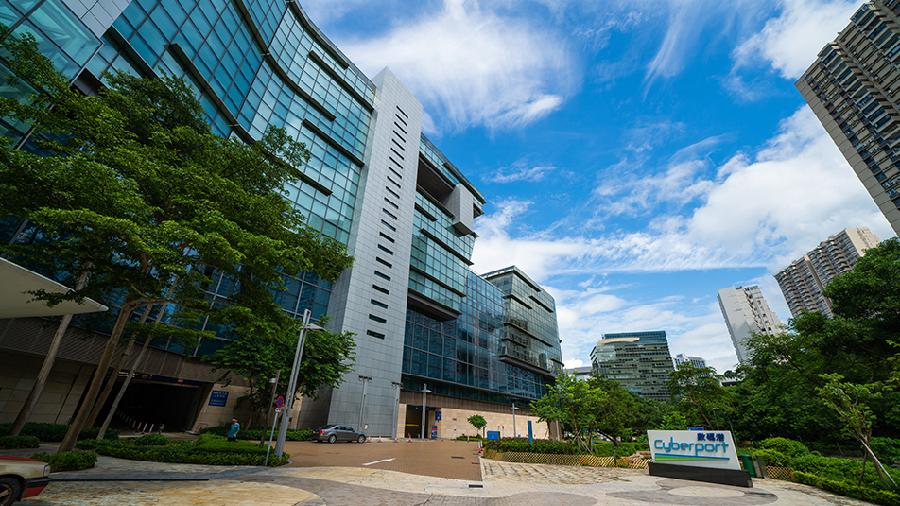Continuing Education

Search for related courses for your career
When planning for further study or career, young people may have some popular industries in mind and look for related courses, for example, finance; real estate and construction services industry; hotel and catering; information and communication technology; retail; recreation, sports, cultural and creative industries, etc. Want to know what courses or training programmes are available for a particular industry? Below are some websites that may help..
Industries and Jobs - Education Bureau'sLife Planning Information Website
Careers Exploration - Talent.gov.hk
More details about the programmes are available from respective institutions. For a comprehensive list of institutions / organisations providing local post-secondary education and other education programmes, please refer to the website of the Education Bureau (EDB). For other related training and courses, please refer to the EDB's Life Planning Information Website.
Still not sure about your career path? Browse the websites listed below to find out more about different jobs and careers and to know more about yourself!
VTC Occupation Dictionary
JOB & VASK of CLAP@JC
Discover@Jobtionaryof Hong Kong Federation of Youth Groups
I am… Youth Portalof St. James' Settlement

“FinTech Self-paced Learning Webinars” is now available to nurture Fintech talents
Cyberport Academy is commissioned by Financial Services and the Treasury Bureau (FSTB) and is delighted to introduce the “FinTech Self-paced Learning Webinars” programme to the public covering Blockchain, RegTech, Cybersecurity, Data economy, ESG and MORE. The programme is available for FREE and contains the Webinar series of the “Financial Practitioners FinTech Training Programme” to raise public awareness of Fintech along with the latest development and enrich the FinTech talent pool in Hong Kong.For the Programme details, please click here to visit the website of Cyberport Academy.
More Information
Lifestyle

[2025 Holidays] Subscribe Hong Kong Public Holiday iCal 2025 to your electronic calendar
From now on you can save time in adding public holidays to your electronic calendar! 1823 Online has prepared the Hong Kong Public Holidays calendar in iCal format for your use!iCal, short form of iCalendar, is a common file format used for sharing calendar data. iCal is compatible with most of the current calendar program.We currently provide data of HK public holidays for 2023-25. For new users, public holidays for 2023-25 will be shown in your calendar after subscribing to our iCal. For users who have already subscribed to our iCal, your mobile devices will automatically update the information of public holidays for 2022-24 to information of 2023-25 after synchronisation.>>>Click here to susbcribe Hong Kong Public Holiday iCal 2025 to your electronic calendar!A statutory holiday is not equivalent to public holidayAn employee, irrespective of his length of service, is entitled to the following statutory holidays. Please click here for details.The 14 statutory holidays for 2025 are:1. The first day of January - 1 January (Wednesday) 2. Lunar New Year's Day - 29 January (Wednesday) 3. The second day of Lunar New Year - 30 January (Thursday) 4. The third day of Lunar New Year - 31 January (Friday) 5. Ching Ming Festival - 4 April (Friday) 6. Labour Day - 1 May (Thursday) 7. The Birthday of the Buddha - 5 May (Monday) 8. Tuen Ng Festival - 31 May (Saturday) 9. Hong Kong Special Administrative Region Establishment Day - 1 July (Tuesday) 10. National Day - 1 October (Wednesday) 11. The day following the Chinese Mid-Autumn Festival - 7 October (Tuesday) 12. Chung Yeung Festival - 29 October (Wednesday) 13. Chinese Winter Solstice Festival or Christmas Day (at the option of the employer) - 21 December (Sunday) or 25 December (Thursday) 14. The first weekday after Christmas Day - 26 December (Friday)All employees are entitled to the above statutory holidays. If the statutory holiday falls on a rest day, a holiday should be granted on the day following the rest day which is not a statutory holiday or an alternative holiday or a substituted holiday or a rest day. Please visit the website of Labour Department for more details.All employees covered by the Employment Ordinance are entitled to statutory holidays. An employer must not make any form of payment to the employee in lieu of granting a holiday (except upon termination of employment contract). In other words, "buy-out" of a holiday is not allowed. An employer who fails to follow such restriction is liable to prosecution and, upon conviction, to a fine of $50,000. If the employer requires the employee to work on a statutory holiday, an alternative holiday or a substitute holiday must be arranged in accordance with the Employment Ordinance. For more details, please click here.

Security risks of using free public Wi-Fi
Free Wi-Fi is provided in public places such as government public facilities, shopping malls, hotels or restaurants for the public and customers to access the Internet. However, there are hidden cyber security risks when using public Wi-Fi.Security RisksWhen your mobile device is connected to a fake Wi-Fi hotspot created by hackers or one that is intruded by hackers, hackers can intercept messages and steal your personal data, account information and password, etc. They may also install malware in your devices. Most routers and smartphones allow users to set whatever service set identifiers (SSID) they want, so it is difficult to distinguish official Wi-Fi hotspots with naked eyes.Which is the official free Wi-Fi? Hackers can fake any SSID (Wi-Fi hotspot name), so it is not easy to determine which Wi-Fi hotspot is really safe to use.
Tips to keep you safe on free Wi-Fi- Verify the SSID with the Wi-Fi service providers- Do not connect to unencrypted Wi-Fi hotspots- Do not transmit sensitive information or use online banking services over a public network- Install firewall, anti-virus and anti-malware in mobile devices- Keep the system and applications in mobile devices up-to-date- Remove the Wi-Fi access point after use and turn off auto-connect to Wi-Fi networks or hotspots
(The video is in Cantonese)
(Source:Website of Cyber Defender)
More information
Useful Links
- Continuing Education Fund - Eligibility
- Sir Edward Youde Memorial Awards for Self-improvement for Working Adults
- Financial Assistance Scheme for Designated Evening Adult Education Courses
- Sir Edward Youde Memorial Outstanding Apprentice Awards
- Sea-going Training Incentive Scheme
- Extended Non-Means-Tested Loan Scheme(ENLS)
- Government Vacancies Enquiry System (Duplicated)
- Explorer monthly online magazine
- Anti-Deception Coordination Centre
- Job Hunting Tips
- Life Planning website
- Points to Note When Changing Jobs
- Set Sail for GBA - Scheme for Financial Leaders of Tomorrow
- Points to note when applying for jobs
- Joint Institution Job Information System (JIJIS)
- Talent.gov.hk
- Job interview strategies
- HKFYG - Youth Employment Network
- Labour Department's Interactive Employment Service
- Work Trial Scheme
- Hang Seng-St. James' Settlement - I am... Youth Portal
- Applying for Government Jobs
- Searching job vacancies
- Life Planning website
- Newest Recruitment Activities
- Examination stress
- My friend is upset, what can I do?
- Open Up - round-the-clock emotional support online platform for young people
- School Social Work
- Understanding Depression
- Clinical Psychological Services
- Effective ways to cope with stress
- Emotions in Adolescents
- How To Pull Back Those Upsets Who Want To Commit Suicide?
- Integrated Children and Youth Services Centre
Last Update Date: 02 Jan 2025








